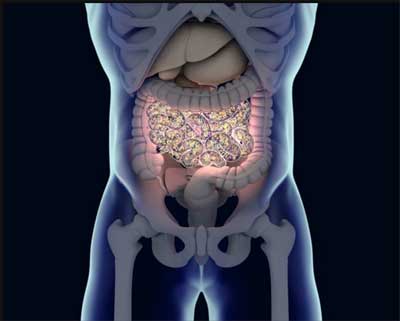- Home
- Editorial
- News
- Practice Guidelines
- Anesthesiology Guidelines
- Cancer Guidelines
- Cardiac Sciences Guidelines
- Critical Care Guidelines
- Dentistry Guidelines
- Dermatology Guidelines
- Diabetes and Endo Guidelines
- Diagnostics Guidelines
- ENT Guidelines
- Featured Practice Guidelines
- Gastroenterology Guidelines
- Geriatrics Guidelines
- Medicine Guidelines
- Nephrology Guidelines
- Neurosciences Guidelines
- Obs and Gynae Guidelines
- Ophthalmology Guidelines
- Orthopaedics Guidelines
- Paediatrics Guidelines
- Psychiatry Guidelines
- Pulmonology Guidelines
- Radiology Guidelines
- Surgery Guidelines
- Urology Guidelines
Gout linked with Erectile dysfunction: Study

Houston: Supplements derived from gut bacteria may help slow down the ageing process and fight the risk of Alzheimer's disease, a new study suggests.
Researchers, including those from Baylor College of Medicine in the US, studied a laboratory worm C elegans, a transparent, simple organism that is as long as a pinhead and shares essential characteristics with human biology.
They identified bacterial genes and compounds that extend the life of and also slow down the progression of tumours and the accumulation of amyloid-beta, a compound associated with Alzheimer's disease.
During its two to three week long lifespan, the worm feeds on bacteria, develops into an adult, reproduces, and progressively ages, loses strength and health and dies.
Researchers employed a complete gene-deletion library of bacterium E coli, a collection of E coli, each lacking one of close to 4,000 genes.
"We fed C elegans each individual mutant bacteria and then looked at the worms' life span," said Meng Wang, associate professor at Baylor College of Medicine.
Of the nearly 4,000 bacterial genes they tested, 29, when deleted, increased the worms' lifespan. Twelve of these bacterial mutants also protected the worms from tumour growth and accumulation of amyloid-beta, a characteristic of Alzheimer's disease in humans, researchers said.
They noted that some of the bacterial mutants increased longevity by acting on some of the worm's known processes linked to ageing.
Other mutants encouraged longevity by over-producing the polysaccharide colanic acid. When the scientists provided purified colanic acid to C elegans, the worms also lived longer, researchers said.
Colanic acid also showed similar effects in the laboratory fruit fly and in mammalian cells cultured in the lab, they said.
Based on these results, it might be possible in the future to design preparations of bacteria or their compounds that could help slow down the ageing process, researchers said.
"The scientific community is increasingly aware that our body's interactions with the millions of microbes in our bodies, the microbiome, can influence many of our functions, such as cognitive and metabolic activities and ageing," Wang said.
"In this work we investigated whether the genetic composition of the microbiome might also be important for longevity," Wang added.
The study was published in the journal Cell.
Next Story
NO DATA FOUND

Disclaimer: This site is primarily intended for healthcare professionals. Any content/information on this website does not replace the advice of medical and/or health professionals and should not be construed as medical/diagnostic advice/endorsement or prescription. Use of this site is subject to our terms of use, privacy policy, advertisement policy. © 2020 Minerva Medical Treatment Pvt Ltd